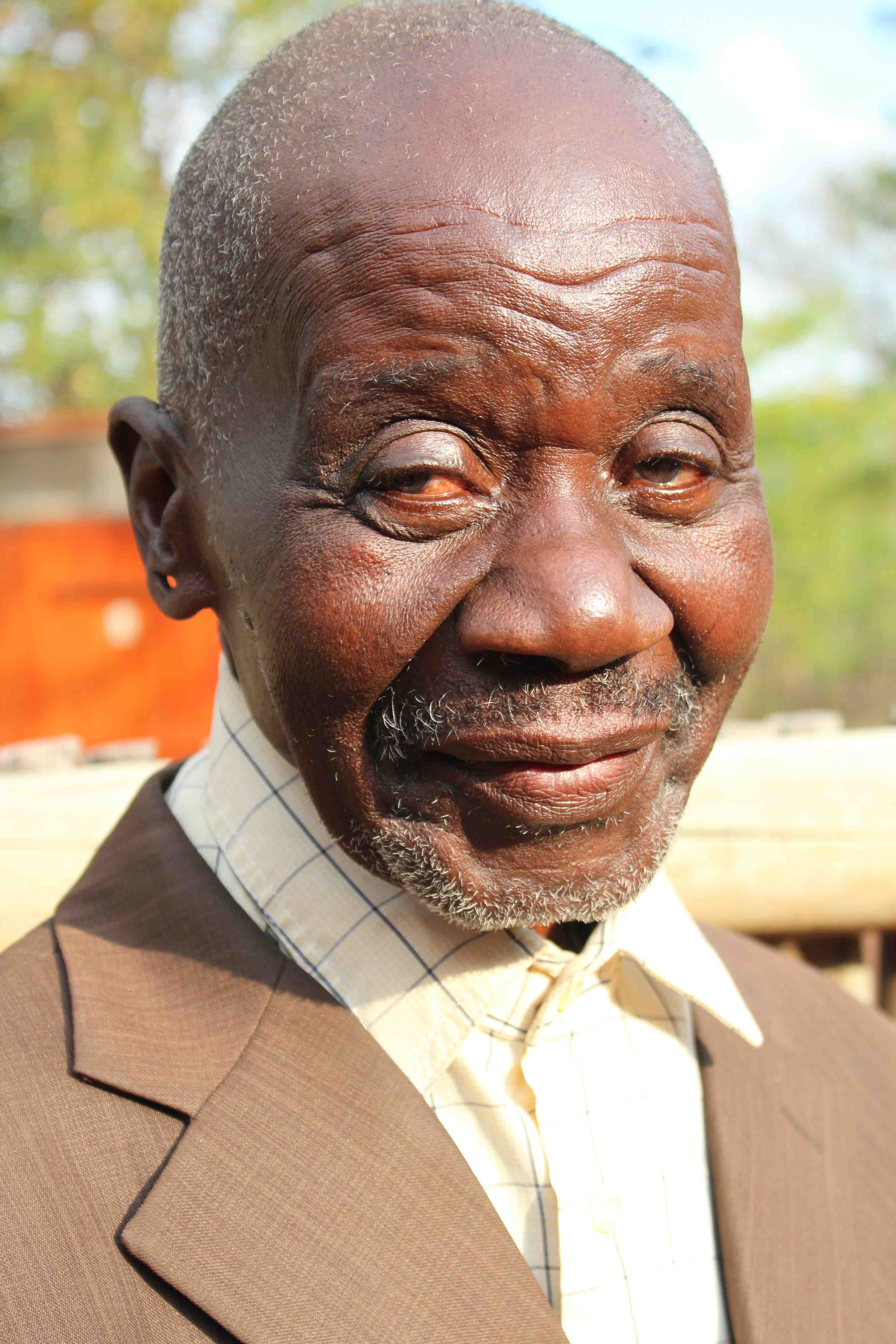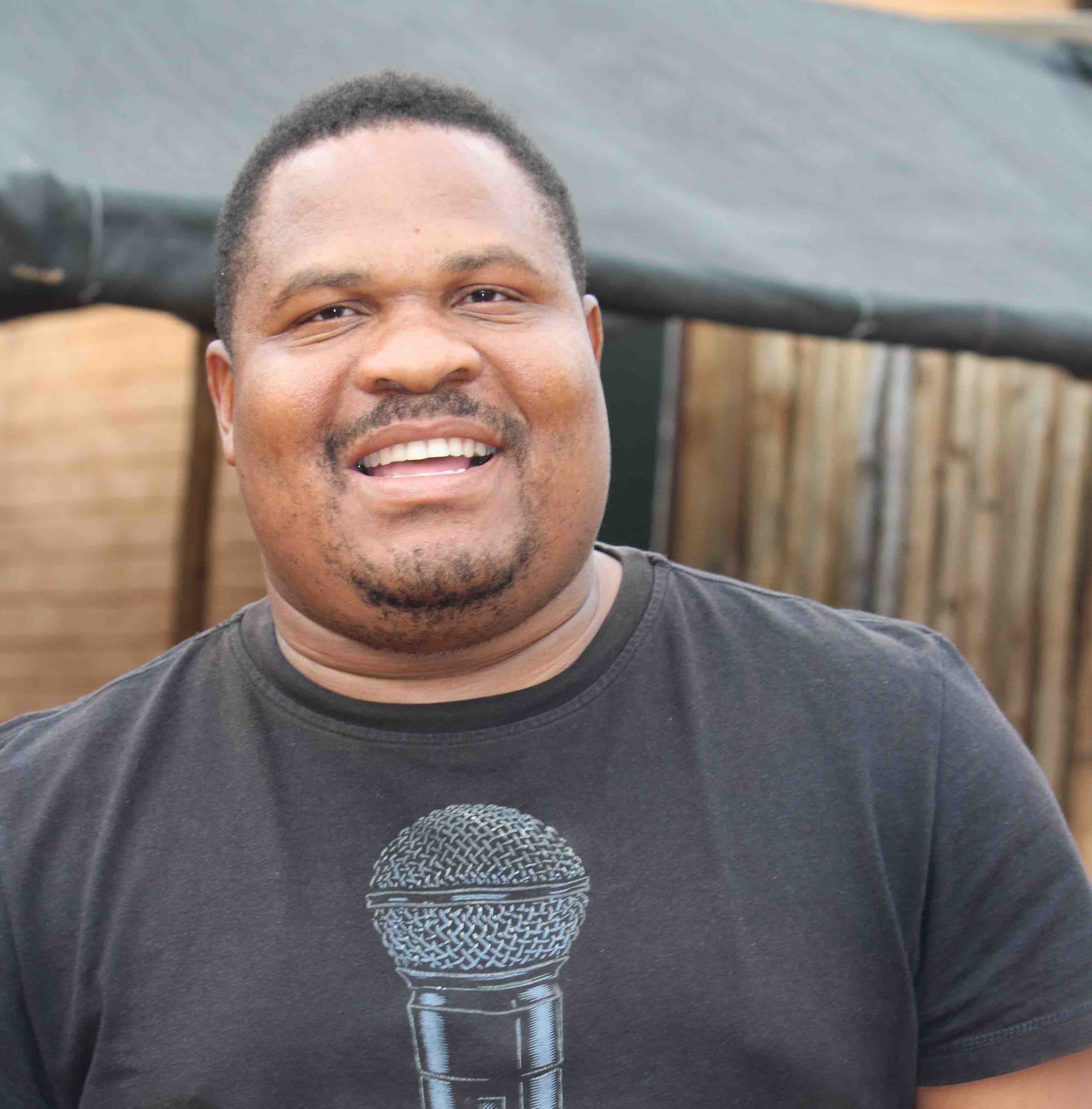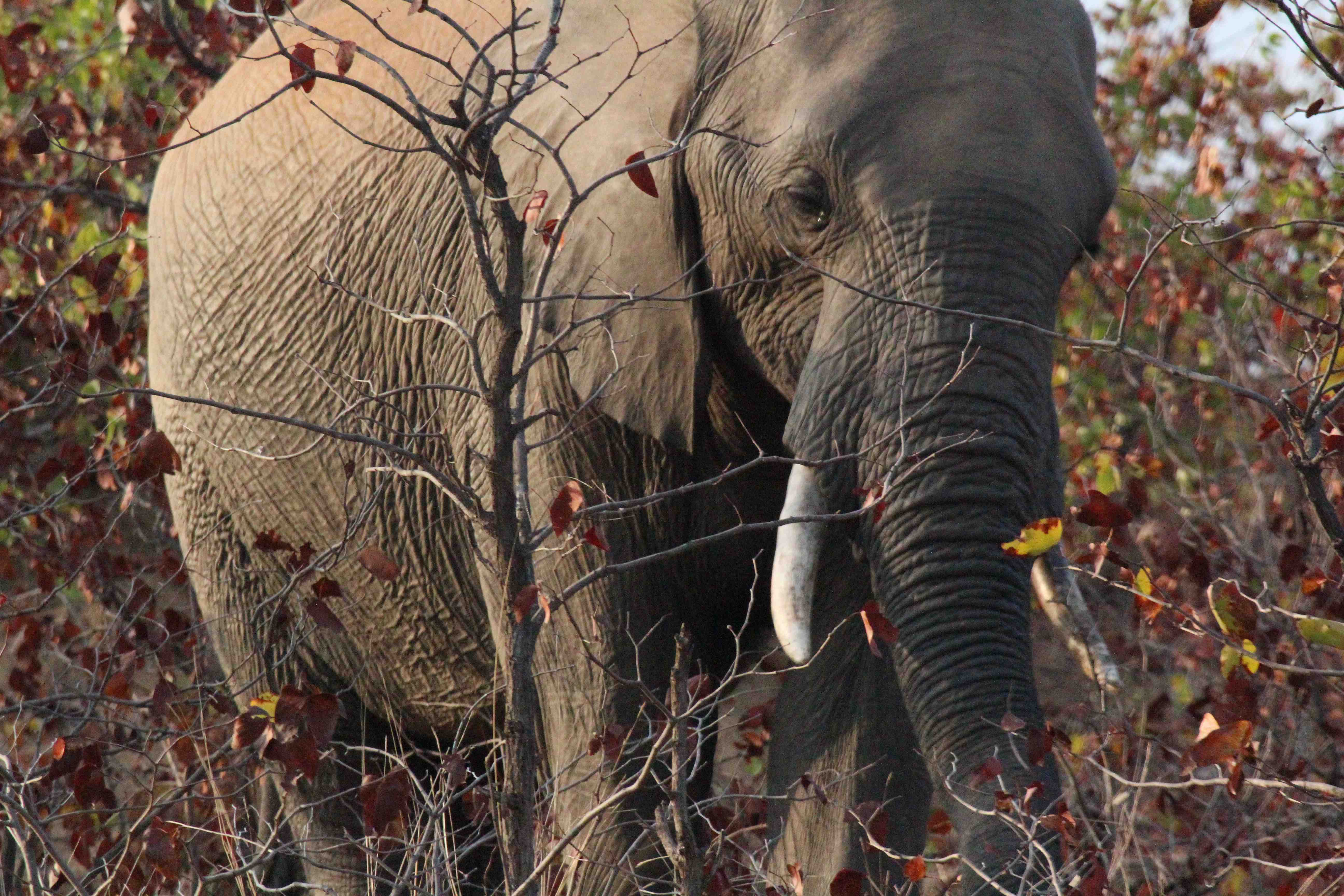
07 Sep Chief row thwarts conservation dream
Ecotourism plans for a community-owned game reserve bordering the Kruger National Park are being scuppered by political patronage and the ‘rule book’ in Pretoria. Story and photos by Michelle Nel
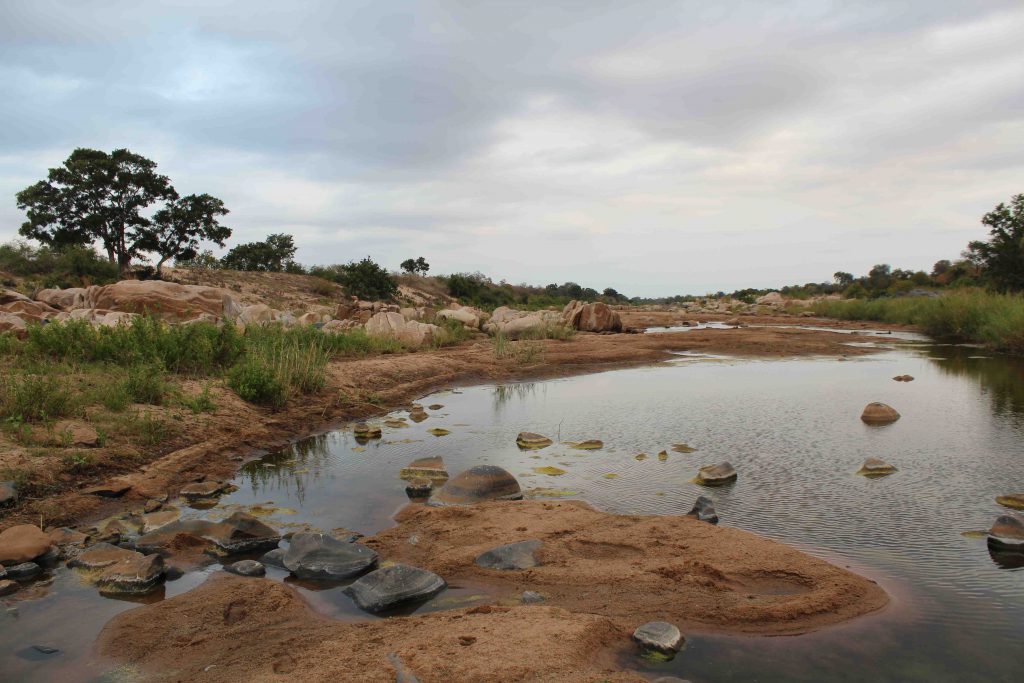
Situated on the banks of the Letaba River, Mthimkhulu Game Reserve borders the world-famous Kruger National Park
It’s a crisp, winter’s day in Mbaula village, near Phalaborwa in Limpopo province. The Mthimkhulu royal family is huddled under blankets in the boma in the chief’s compound. Nearby is their heritage, the Mthimkhulu Nature Reserve, which forms part of the 42,000-hectare Letaba Ranch bordering the Kruger National Park.
This land belongs to the community, yet they have no right to manage it or prosper from it.
“We do not have a problem with the ANC,” says royal family member Tenson Mahundla, who acts as interpreter for the day. “The new government has given us electricity, water and schools. But our chief is not recognised by the government.
“Because of that we have no rights to our land. We have to report to a ‘puppet chief’ some 70 kilometres away and he rakes in the money from our hunting and conservation lands.”
“We and our game reserve are being governed by remote control,” says Rexon Mabunda, the 85-year-old induna (headman) of the Mthimkhulu royal family.
“Jackson Masiza was formally designated as our real chief in 1959. After forced removals we had to report to his cousin, Peni Cyprian Ngove,” Rexon says. “In the books at the premier’s office it says Ngove is chief of the Mthimkhulu.”
The people of Mthimkhulu were forcibly relocated to the villages of Mbaula and Phalaubeni near Phalaborwa in 1968, and compensated with rights to the nearby Mthimkhulu Private Game Reserve.
Therein lies the rub. Situated on the banks of the Letaba River, the Mthimkhulu reserve borders the Kruger National Park and boasts “big five” game viewing and hunting.
“No wonder Ngove is interested in ruling us,” says Tenson. “The illegitimate chief gets the money and very little trickles back to the community.”
Professor Chris van Vuuren, an anthropologist at the University of South Africa (Unisa), was commissioned by the community to research the lineage. He says that even at the time of relocation, the status of the late Jackson Masiza as hosi (chief) was never in question.
“After the death of Hosi Masiza, his son Carlson was too young to rule. Cousins Johannes and Mbambazi Mabunda pledged allegiance to Ngove. According to the elders of Mthimkhulu, this has always been fiercely opposed by the entire community.
“Documentation indicates that Ngove of Mabunda never deserved the elevated status of hosi, or chief,” says Van Vuuren. “If such an elevation or promotion was to be enacted, it should include Mthimkhulu as well.”
Direct lineage
Rexon says when the Ngove tribal authority discovered that Jackson Masiza had died, “Ngove said there was no tribal office in Phalaborwa so we should rather work with his office, some 70km away, and we could open our own office later on.
“They took all our documents to their office. They claimed we shared a surname. Ngove then came to ‘crown’ our acting chief Mabunda as induna. By the time we objected, it was too late.”
Rexon’s son, Vincent Mabunda (40), says the chief (hosi) is now called a headman (induna). “How can Ngove be promoted above Mthimkhulu when Mthimkhulu has a higher ranking in cultural terms? Our chief has direct lineage to Chief Masiza.
“What’s more, Ngove was born from the second wife, so he cannot ever be a chief. However, he is politically connected: his brother, the late Hudson Ntsanwisi, was the first chief minister of Gazankulu, a former bantustan in apartheid-era South Africa.”
The homelands were a result of apartheid engineering legislated by the Bantu Authorities Act of 1951 to gather remnants of the 19th century independent African chieftaincies under the apartheid state’s administrative control.
“Ngove thinks he is our chief yet we do not know him,” says Rexon. “He has never once come here.”
So who is the rightful chief? In terms of direct lineage, it is Kotlani Elvis Mthimkhulu, born in 1981 and the first son of the first wife of Carlson, who in turn was the first son of Jackson Masiza.
Elvis is an affable man in his 40s who has an LLB degree from Turfloop University. “Ngove has rights because of the ‘rule book’ in Pretoria, but where does that leave us?” he asks. “We cannot participate in decision-making.
“Resolutions are now planned in Ngove’s town, supported by his henchmen. What about our participation in the hunting permit for Mthimkhulu Ranch? Ngove wants a hand in the rewards. Our community was not consulted and is becoming angry.”
Are marches or protests planned? Elvis laughs. “Ngove’s brain must be crackling. He is afraid of us. If I have to go to Ngove’s office to ask for a hunting permit – I would rather eat grass.
“The previous hunting contract was meant to help the community but failed. Hunters simply shot all the community’s elephants. This land should be managed in a community-based way, not in a ‘Chief Ngove-based’ way.”
Elvis counts the former head of the Kruger and of South African National Parks, David Mabunda, as a cousin. David is acutely aware that “one of the major challenges facing the Kruger today is its lack of legitimacy among the three million black people living on its doorstep”.
David says he does not know the details of the Mthimkhulu leadership dispute. “I am a distant cousin but have not been in the Phalaborwa area for years, although I am in contact with that side of the family.”
He says many leadership muddles have arisen because of apartheid and describes it as a “sad situation”.
According to Elvis, Ngove does not disagree with the Mthimkhulu chieftainship and has suggested “we should all sit around a table and talk”. No talks have been arranged, however.
“Why is the ‘Chief’ Ngove not living in our village?” asks Elvis.”His absence is very inconvenient. If someone wants to open a bank account or business, they have to travel 70km, or one and a half hours, on a dirt road to the tribal office to obtain proof of residence. Ngove even wrote a letter to the banks saying that if the letters do not come from him they must not be recognised.”
A local community agriculture liaison worker, who does not want to be named, says he applied three times through the traditional leadership commission to help the community reinstate their rightful chief, and three times the papers “disappeared”.
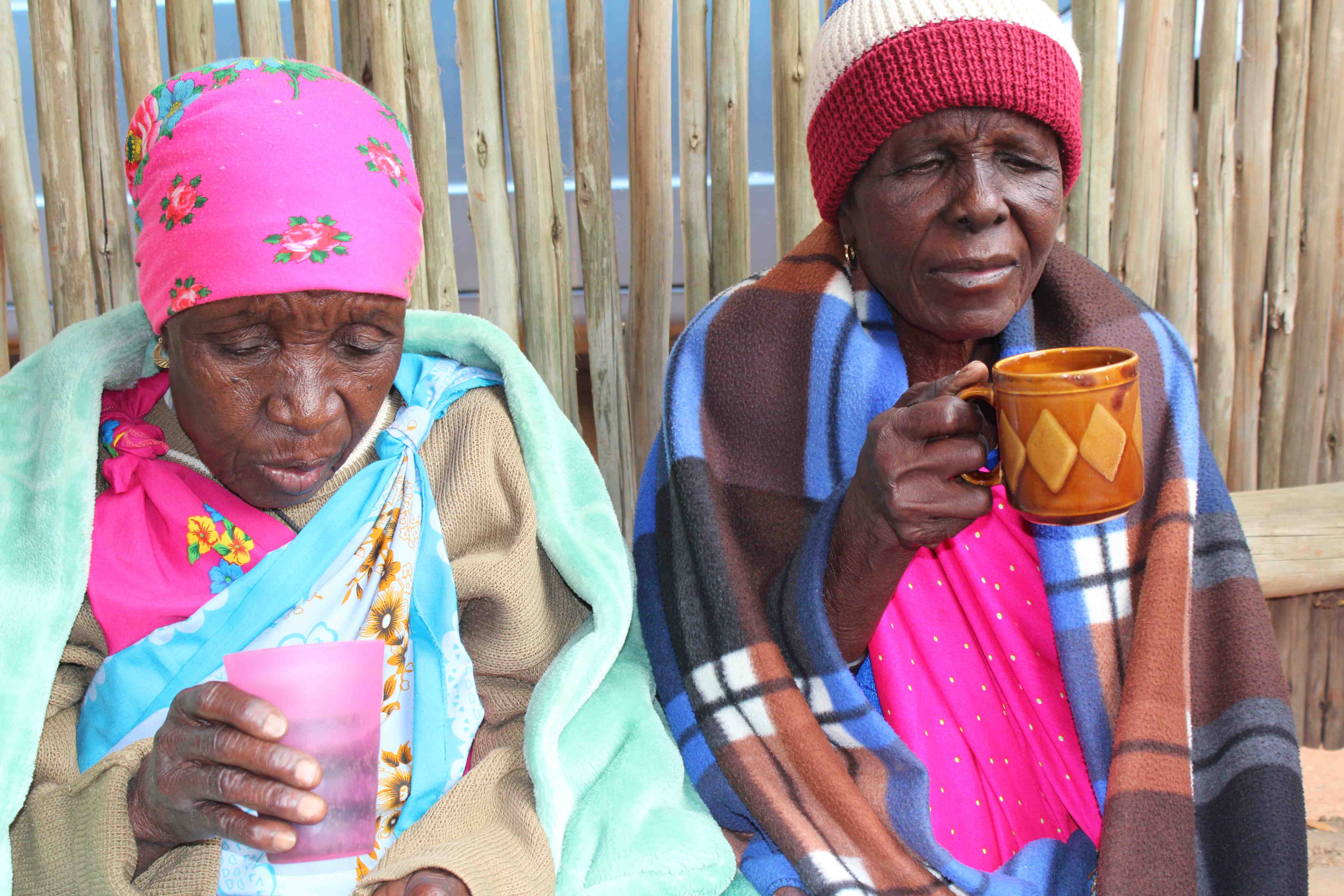
The elders of Mthimkhulu say Ngove’s appointment has always been fiercely opposed by the entire community
High court
“With no money the community could not fight Ngove,” the liaison worker says. “Ngove has many political friends. They call him the ‘Robert Mugabe’ of the area.”
The current chief minister of Gazankulu is the on-paper head of the Majeje, another community in the Phalaborwa area embroiled in a chieftaincy dispute. Majeje has rights to the Letaba Ranch provincial reserve.
Elvis has appointed a legal representative to challenge Ngove’s leadership in the high court. “We live on our land, yet we have no rights to earn money from this land,” Elvis says.
“The bottom line is, I am a chief. I do not report to another ‘chief’,” he says. “I have to look after my own community [some 3 000 people] right here where they live. While I am at Ngove’s office, everything stops here in my village.
“Ngove is not a bad guy. We are related. But I want my status as a senior traditional leader reinstated. I would be happy if we could settle out of court. I am fighting the government [the department of co-operative governance and traditional affairs], not Ngove himself.
“Our vision for the land is to uplift the community and create jobs inside the reserve. Under Ngove, my people are suffering.”
There was a time when hunting revenues did flow to Mthimkhulu, enabling the community to build a crèche for R500 000.
“We had drop-in centres in Mbaula where children could come after school and get a meal and homework supervision,” Elvis says. “There were also soup kitchens. It all stopped because we had to report to Ngove. We have no more income. We used to drill boreholes at Mbaula and Phalaubeni.”
About 70% of the community is unemployed. “If we had water, people would farm and grow vegetables. When we were moved to this dry area, it was difficult to begin farming again,” Rexon adds.
“Here there is drought. They moved us with our crops and livestock. When we got to the new place we had to clear the land all over again. It was hard work.”
Rexon has never received a salary as an induna, despite the fact that all registered indunas should receive R5,600 a month from the government.
A few community members have been innovative. One man had a plot on the river where he planted a few watermelons and had four donkeys. He then borrowed money from an Afrikaans farmer and accessed tractors and irrigation. Jobs were created and he was able to make a profit and still pay back his loan.
“Now Ngove has sent his people to demand tax, which will mean that no profit can be made,” Elvis says. “If he does not pay, the government shuts down his farming project.”
Pistorius hunting contract
Earlier this year, community members noticed there was a breach in a hunting contract negotiated by Ngove for the Mthimkhulu reserve. Ngove had signed a 20-year contract with Theo Pistorius, uncle of the disgraced Paralympian Oscar Pistorius, which lasted until May 2015.
They informed the contract holder about the breach, but he did not bother to contact the community within the requisite 30 days, so the community terminated the contract. One of Pistorius’s partners went on to the land with his truck and removed their valuable items from the hunting camp.
The Mthimkhulu community has since taken occupation of the Mbaula Ranch on the reserve and installed their own professional hunter.
A group of young eco-entrepreneurs called “unEarth” is working with the Mthimkulu community to unlock the potential of their communal lands. Business plans include hunting and ecotourism on the reserve, and game ranching, sustainable agriculture and biofuel production on land outside the reserve.
Oxpeckers sent questions to Dr Mathole Motshekga, in his capacity as advisor to the department of co-operative governance and traditional affairs, about the status of the Mthimkhulu royal family. Motshekga says he has referred the dispute to the commission on traditional chieftaincy disputes, housed in the department.
Dr Muzamani Charles Nwaila, director-general for the department of traditional affairs, says the dispute is one of 500 under consideration by the Kgatla Commission, a traditional leadership and boundaries disputes commission in Limpopo province led by anthropologist and former lecturer Ramokone Kgatla. Set up in 2012, the commission has until December 31 2015 to finish its work.
Peni Cyprian Ngove did not respond to questions sent to him by Oxpeckers.
• Find related links at MalaMala Files

